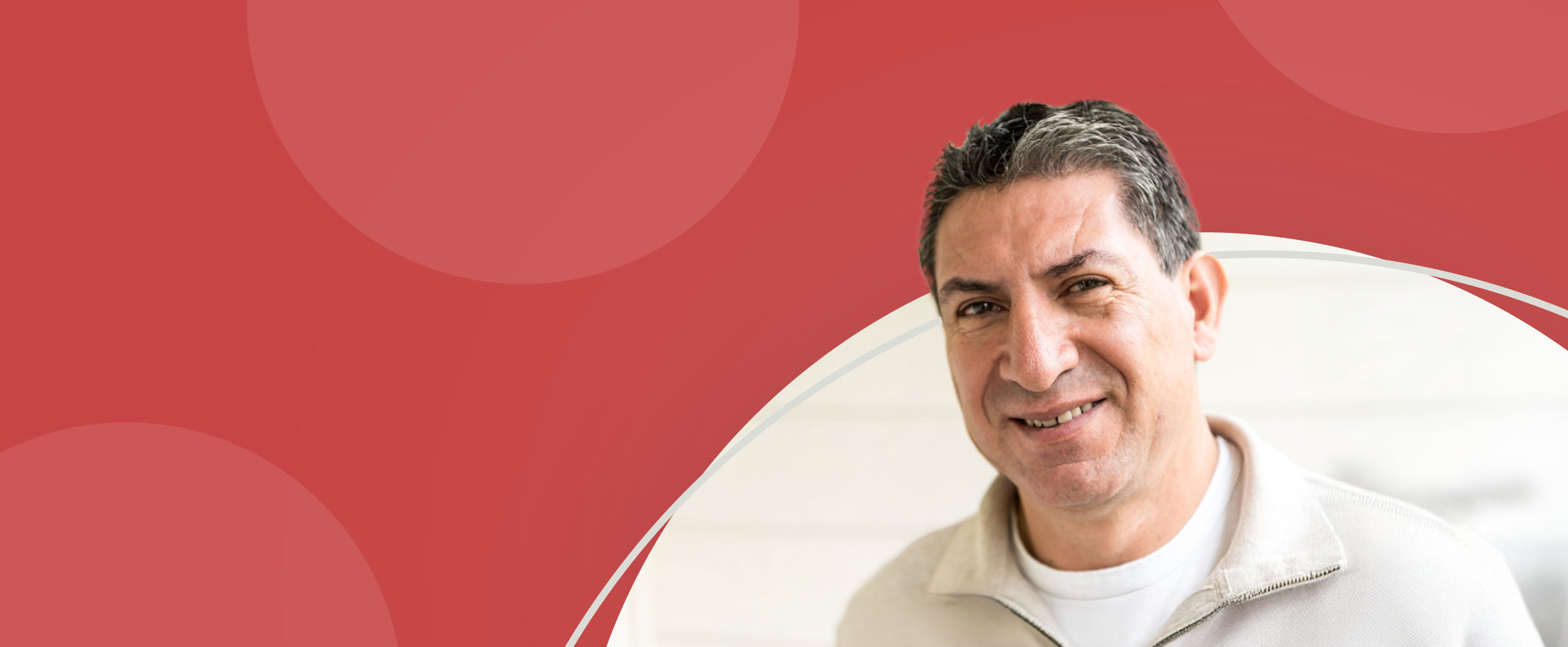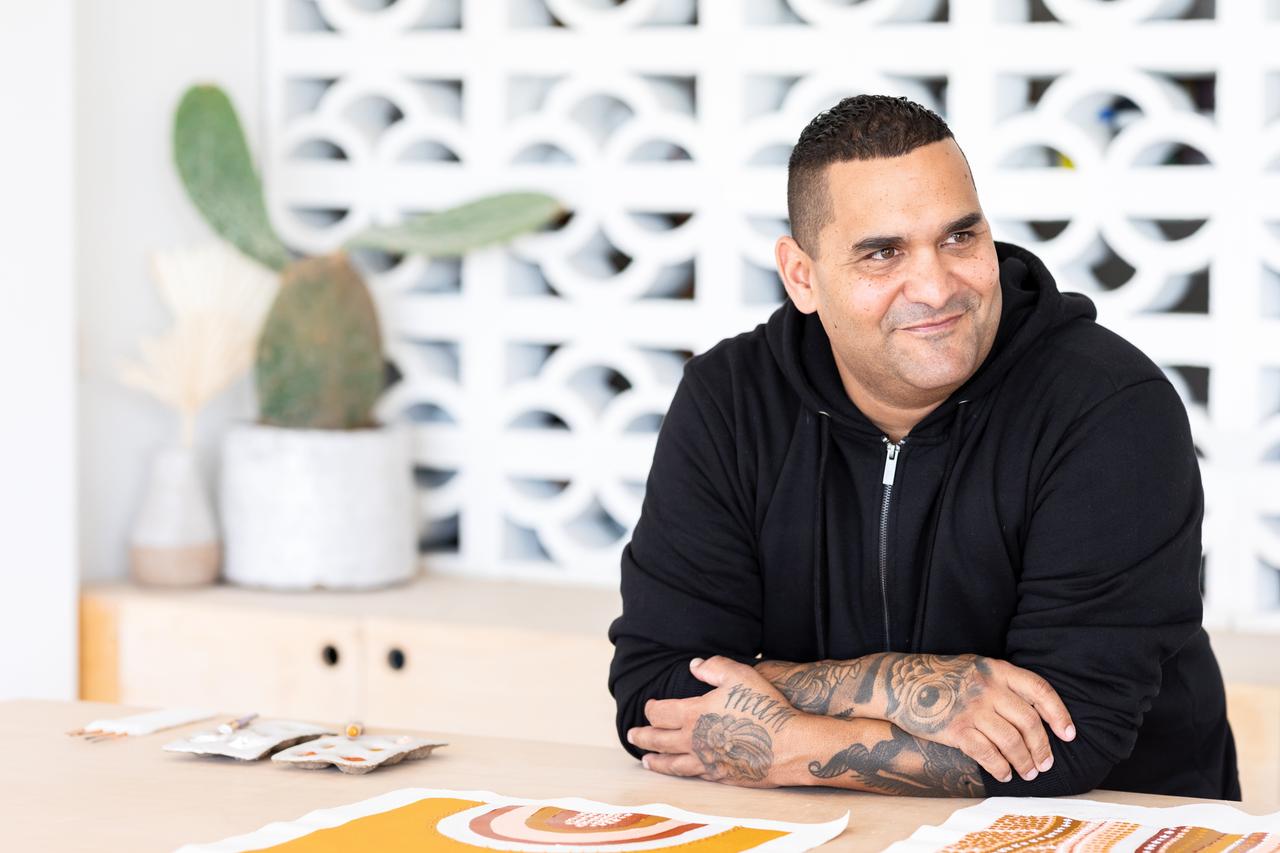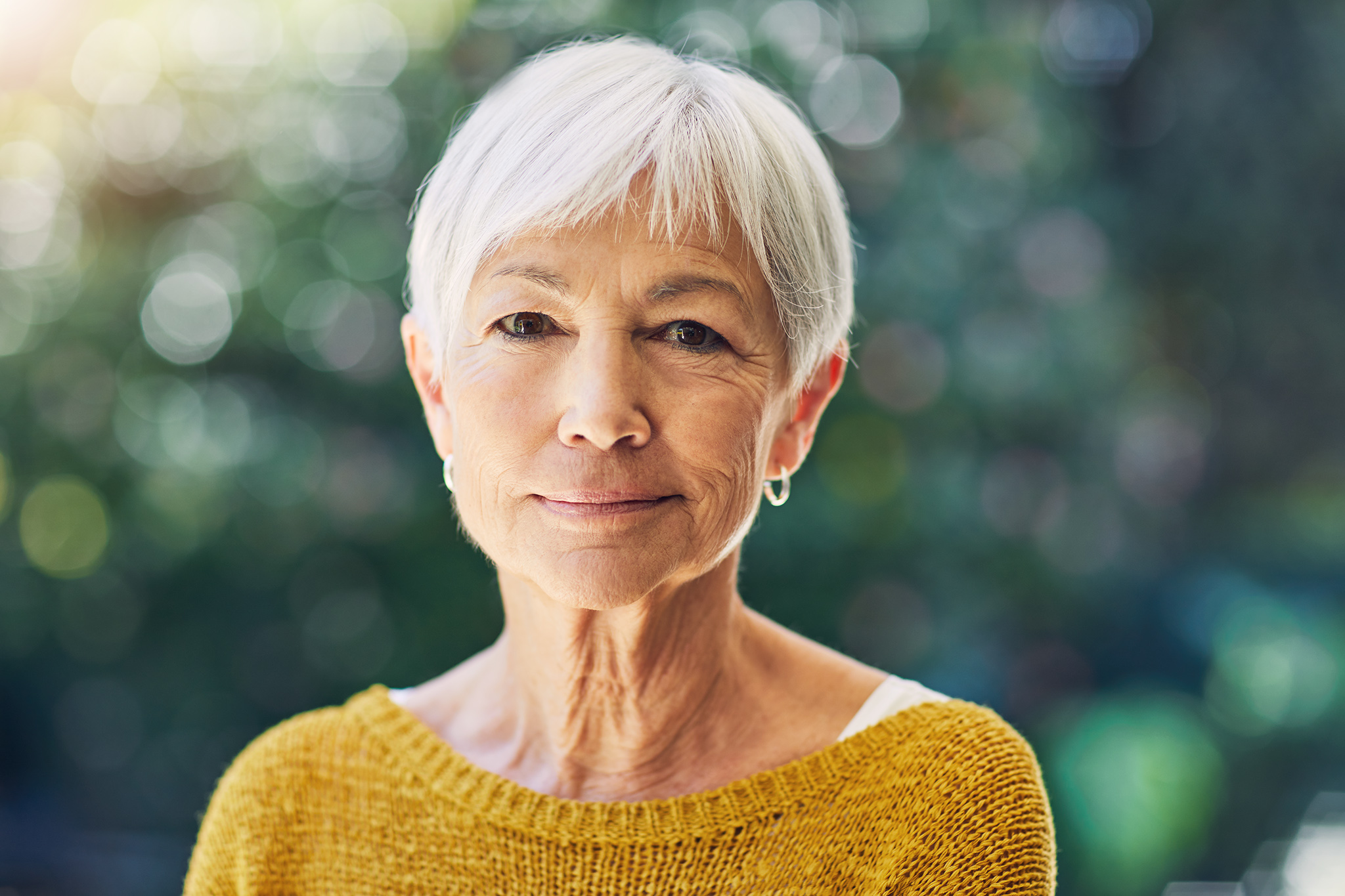- Home
- Conditions we treat
- Blood cancer
- Leukaemia
Introduction

Leukaemia
Discover more about leukaemia including types, symptoms, steps to diagnosis, and treatment options.
What is leukaemia?
What is leukaemia?
Leukaemia is a term used to describe certain types of blood cancer.1 It can occur when abnormal blood forming cells in the bone marrow grow in an uncontrolled way.1 Leukaemia usually starts in the bone marrow.1
Most blood cells are made in the bone marrow, which is the spongy centre of your bones.2 This includes white blood cells, which are an essential part of the immune system and help fight infection and disease.3 However, in people with leukaemia, the bone marrow produces abnormal white blood cells (called blasts) that cannot fight infection effectively.1 This can increase the risk of getting sick.1
Leukaemia is divided into ‘acute’ or ‘chronic’ depending on how fast its growing and where it originated.1 Under this umbrella, there are four types of leukaemia:1,4
- Acute myeloid leukaemia (AML): is the most common leukemia in adults and the most aggressive
- Acute lymphocytic leukaemia (ALL): this type of leukaemia occurs more in children rather than adults
- Chronic myeloid leukaemia (CML): this type of leukaemia mainly occurs in adults and is usually slow growing. It is often actively monitored and only treated when/if it progresses and symptoms evolve
- Chronic lymphocytic leukaemia (CLL): this form of leukemia is similar to CML, in that it usually affects adults, and occurs more so in older adults and is slow growing. Treatment may not occur until the disease progresses
Leukaemia symptoms may differ according to the type diagnosed - for instance acute leukaemia symptoms can be more severe and develop faster,1 while chronic leukaemia symptoms usually tend to develop more slowly, and this may take months or years.1,4
Leukaemia symptoms may include:1,5,6
- Weakness and fatigue that doesn’t improve with rest
- Loss of appetite
- Anaemia (low number of red blood cells)
- Frequent infections that may include high temperatures, coughing, increased passing of urine, boils, sore throat
- Bruising
- Bleeding easily, particularly from gums and nose
- Swollen lymph glands (often noticeable in the armpits, neck, and groin)
Having any of these symptoms doesn't necessarily mean that you have leukaemia, however speak with your GP or specialist if you have any questions or concerns.
It’s not known exactly what causes leukaemia.6 However, some factors appear to increase the risk of getting leukaemia, including:1,6
- Advanced age (average age for some types of leukaemia is 65)
- Exposure to intense radiation
- Smoking - the benzene in cigarettes is thought to increase the risk of leukaemia
- Certain genetic syndromes, including Down syndrome, Klinefelter syndrome, Fanconi anaemia, Bloom syndrome, trisomy 8, and Li–Fraumeni syndrome
- Certain viral infections such as the Human T-Cell leukaemia virus
If you have any questions or concerns about potential risk factors, it is recommended that you make an appointment with your GP or specialist.

Make an enquiry
Contact us today to find out how GenesisCare can help you.
Diagnosis
Diagnosing leukaemia
Your GP will refer you to a specialist if they are concerned about your symptoms and risk factors for leukaemia. In addition to a physical examination, your doctor may also order a range of tests to better understand any symptoms, help diagnose and determine the type of leukaemia.1,6
These tests may include:1,6
- Blood tests
- Bone marrow biopsy
- Lumbar puncture
- Imaging tests: such as X-rays, computed tomography (CT) scans
Your doctor will explain more about what each of the tests are and why they may be considered.
If you are found to have leukaemia, your doctor will explain what stage your cancer is and how far it has progressed.
Find a doctor
Search for Leukaemia specialists in your state.
Treatment options
Treatment options for leukaemia
Treatment for leukaemia depends on the type of leukaemia that is diagnosed as well as your overall health (i.e. age, other health conditions). 1,6
Based on your diagnosis, your treating doctor will discuss the various treatment options with you. However, broadly speaking, treatment options may include:1,6-10
- Peripheral blood stem cell and bone marrow transplantation
- Tyrosine kinase inhibitory therapy
- Allogeneic stem cell transplantation (HSCT)
- Hypomethylating agents (HMAs)
- Checkpoint inhibitors
- Bispecific antibodies,
- Chimeric antigen receptor (CAR)-T cells
- Combination of the above

Cancer treatment often results in side effects, yet the type and severity of side effects may vary between individuals.11,12 You can ask your doctor for detailed information about side effects and how to best manage them.
Find a centre
Search for consulting and treatment locations near you.
The following list may help when researching the types of activities and nutrition you can consider during treatment.13 Your treating doctor can also provide further information or point you towards the right resources:
- Get as much rest as possible
- Aim for a wholefood, varied diet, and we also encourage you to think about eating foods that interest you rather than what you think you should eat
- Appetite changes are common, and you may experience taste changes or nausea. Help manage this by eating small, frequent snacks and avoiding smells that make you nauseous
- Drink lots of water
- Reach out to support groups and others who have had cancer treatment
- Record your side effects in a diary or journal
- Speak to your doctor about incorporating some gentle exercise into your weekly routine
- It is important to acknowledge when you are fatigued and rest when you need to
- Ask for and accept help from family, friends and neighbours
- Be open with employers about your treatment and discuss flexible working options if you need them
Find a centre
Search for consulting and treatment locations near you.
Support services
Support services
![]()
Leukaemia Foundation
The national organisation dedicated to the care and cure of people living with leukaemias, lymphomas, myeloma and other related blood disorders.
- Chennamadhavuni, A. et al. StatPearls [Internet]. Treasure Island (FL): Leukemia. StatPearls Publishing; 2023 Jan (cited Feb. 2024). Access from: https://www.ncbi.nlm.nih.gov/books/NBK560490/
- Lucas, D. Curr Opin Hematol. 2021; 28(1): 36–42.
- Jagannathan-Bogdan, M and Zon, LI. Development. 2013; 140(12): 2463–2467.
- Mukkamalla, SKR. Et al. StatPearls [Internet]. Treasure Island (FL): Chronic Lymphocytic Leukemia. StatPearls Publishing; 2023 Mar. (cited Feb. 2024). Access from: https://pubmed.ncbi.nlm.nih.gov/29261864/
- Howell, DA. Br J Cancer. 2015;113(7):1114-20
- Cancer Council Australia [website]. Leukaemia. Page last updated Sept. 2023 [cited Jan. 2024]. Access: https://www.cancer.org.au/cancer-information/types-of-cancer/leukaemia
- Andreozzi, F. et al. Int J Mol Sci. 2022;23(7):3887
- Hampel, PJ. & Parikh, SA. Blood Cancer J. 2022; 12(11): 161
- Malczewska, M. et al. Cancers (Basel). 2022;14(8):2021.
- Jabbour, E & Kantarjian, H. Am J Hematol. 2022: 97(9):1236-1256
- Cancer Council Australia [website]. Cancer side effects. Cited Jan. 2024. Access: https://www.cancer.org.au/cancer-information/cancer-side-effects
- National Cancer Institute. U.S. Department of Health and Human Services. Side Effects of Cancer Treatment [webpage}. [Cited Oct. 2023]. Access from: https://www.cancer.gov/about-cancer/treatment/side-effects
- Cancer Council Australia [website]. Nutrition for People Living with Cancer. Page last updated July 2022 [cited Jan. 2024]. Access: https://www.cancer.org.au/assets/pdf/nutrition-and-cancer-booklet
- Cancer Council Australia [website]. Does cancer only cause physical changes? [cited Jan. 2024]. Access: https://www.cancer.org.au/iheard/does-cancer-only-cause-physical-changes
- Cancer Council Australia [website]. After a diagnosis. [cited Jan. 2024]. Access: https://www.cancer.org.au/cancer-information/after-a-diagnosis#

You are leaving our website
You are now leaving our website. GenesisCare do not control this content and therefore are not responsible for its accuracy or reliability.
Disclaimer:
This website is provided for information purposes only. Nothing on this website is intended to be used as medical advice, or to diagnose, treat, cure or prevent any disease. It should not be used as a substitute for your own health professional's advice. Any medical procedure or treatment carries risks. Before proceeding with treatment, you should discuss the risks and benefits of the treatment with an appropriately qualified health practitioner. Individual treatment outcomes and experiences will vary.


